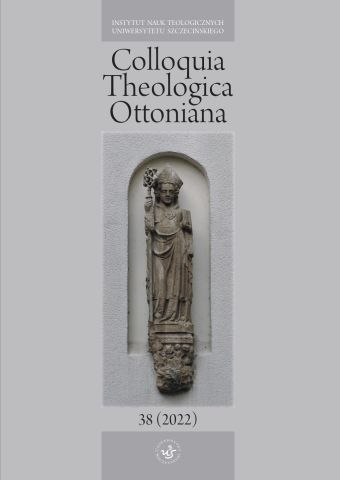Ekofilozofia a filozofia prawa rozumianego jako forma symboliczna
ECOPHILOSOPHY AND THE PHILOSOPHY OF LAW UNDERSTOOD AS A SYMBOLIC FORM
Author(s): Ewa Kosowska-CzaplaSubject(s): Christian Theology and Religion, Philosophy, Law, Constitution, Jurisprudence, Theology and Religion, Canon Law / Church Law, Sociology of Religion
Published by: Wydawnictwo Naukowe Uniwersytetu Szczecińskiego
Keywords: ecophilosophy; Ernst Cassirer; symbolic form; philosophy of law
Summary/Abstract: This article aims to find the paradigm of ecophilosophy in the philosophy of symbolic forms in the context of law. At the time of the article, ecophilosophy needed an introduction, and it needed to be defined within the scope of the philosophy of law. First, the symbolic universe was presented as the starting point for the search for this paradigm. The world in which the animal symbolicum lives differs significantly from the world of other organisms because only man lives in the symbolic universe. The symbolic universe was defined as a world consisting not only of material reality but also of numerous networks formed by symbols such as language, myth, and religion. Humankind recognized reality differently but also co-creates it.Next, Ernst Cassirer’s philosophy of symbolic forms was presented in more detail with particular emphasis on law. The philosopher identified nature as the sphere of lawfulness, and he acknowledged the wisdom of nature manifesting itself in harmony and biodiversity. He looked for sources of natural human rights. Man as an animal symbolicum should participate as the co-creator of the great masterpiece of creation. This act of co-creation included morally righteous actions, as well as establishing the appropriate content of law. Consequently, according to the philosophy of symbolic forms related to ecology, the guiding principle – a paradigm in the relationship between man and nature – should be the principle of personal, social, and state responsibility for nature. I called this principle the pneumocentrism paradigm of ecophilosophy. Additionally, I looked for acceptance or rejection of this principle, including in court rulings in Poland. I noted that in some ways the existence of this principle is considered desirable; however, its implementation may become a difficult task for mankind. Among other things, humankind desires to satisfy their own needs and faith quickly in future technological possibilities as a way to reduce its destructive actions towards nature in the present.
Journal: Colloquia Theologica Ottoniana
- Issue Year: 2022
- Issue No: 38
- Page Range: 237-257
- Page Count: 21
- Language: Polish

